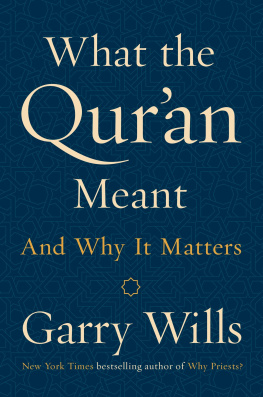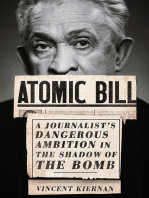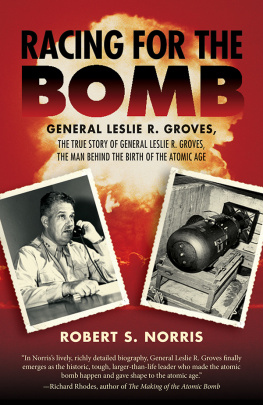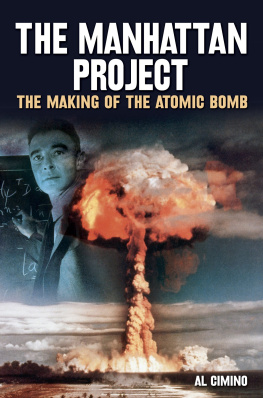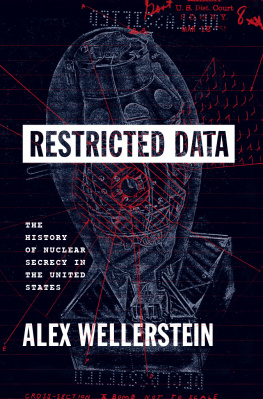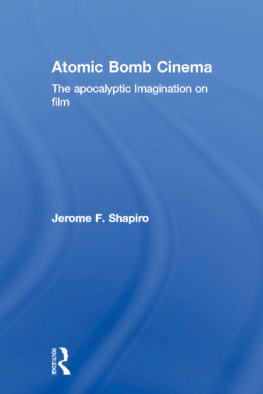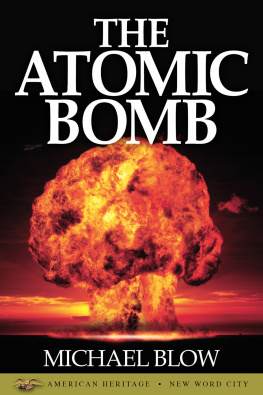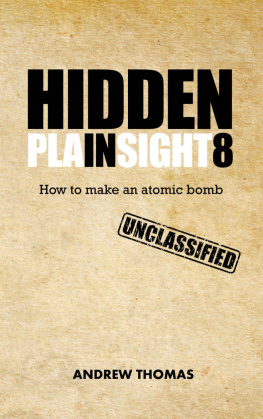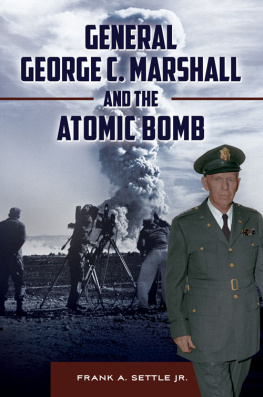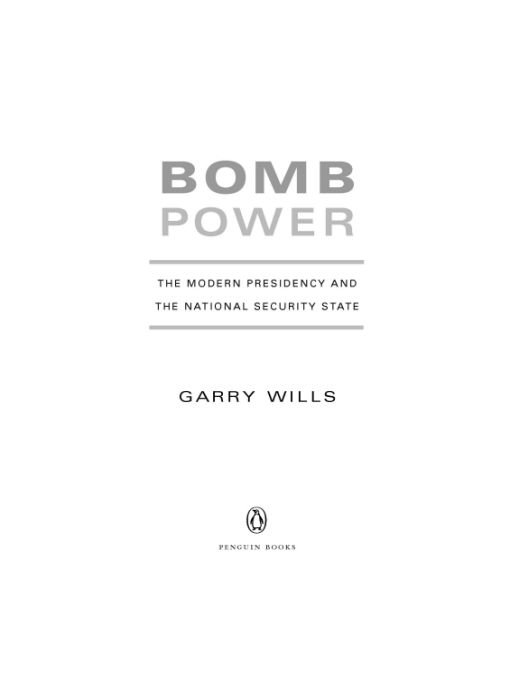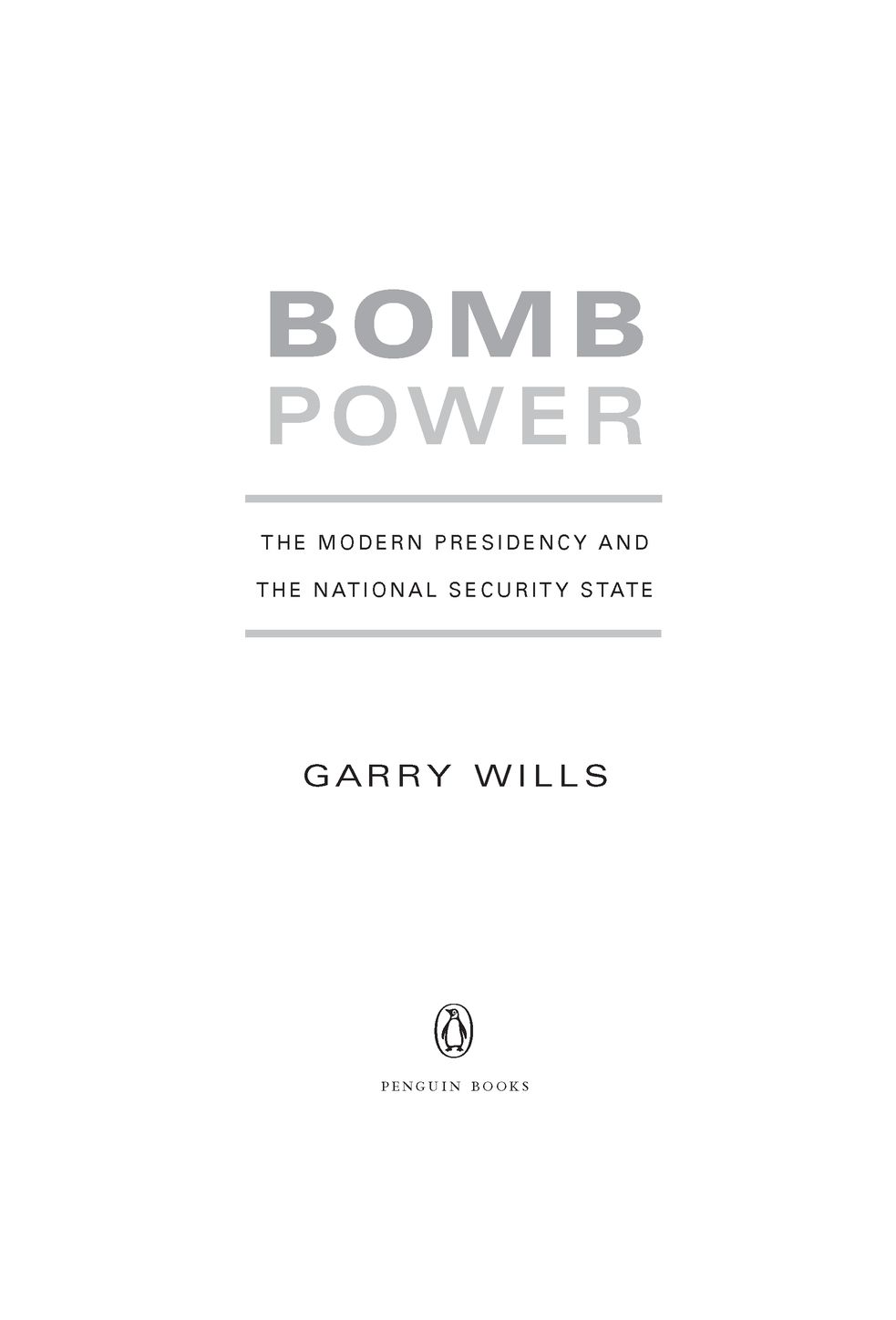Table of Contents
Praise for Bomb Power
Long a formidable chronicler of presidents, society, and religion, [Wills] reveals here the forensic skills of a good investigative reporter.... In the end, Bomb Power is a hymn to the wisdom of the U.S. Constitution and an excoriation of those in authority who have so willfully departed from it.
Financial Times
Written in Willss characteristically accessible style, Bomb Power is a well-argued denunciation of our constitutional gatekeepers.... His breadth of knowledge is awe inspiring, but he never goes over the readers head: He is a scholar with the heart of a journalist.
The Miami Herald
Deeply thought-provoking... A prolific author of astonishing range, Wills... offers a forceful indictment of the forty-third president, and even more of his vice president, Dick Cheney.
San Francisco Chronicle
Thought-provoking... compelling.
Los Angeles Times
[An] audacious work of political and historical analysis that sees the Manhattan Project and the invention of the atomic bomb as the starting point of the current crisis in the American democracy.... I promise that you will be thinking of Bomb Power when you mark your next ballot, if only because Wills confronts us with whats at stake when we cede control of the National Security State to our elected public off icials.
The Jewish Journal
As usual with Wills, provocatively argued and elegantly written.
Kirkus Reviews
ABOUT THE AUTHOR
Garry Wills has written many acclaimed and bestselling works, including Lincoln at Gettysburg, Cincinnatus: George Washington and the Enlightenment, What Jesus Meant, and Head and Heart. His books have received many awards, including the Pulitzer Prize. A professor of history emeritus at Northwestern University, Wills is a frequent contributor to The New York Review of Books and other publications.
DEDICATION
BLESSED ARE THE PEACEMAKERS
INTRODUCTION:WAR IN PEACE
American society in peacetime began to experience wartime regulation.
The awful dilemma was that in order to preserve an open society, the
U.S. government took measures that in significant ways closed it down.
SENATOR DANIEL PATRICK MOYNIHAN
This book has a basic thesis, that the Bomb altered our subsequent history down to its deepest constitutional roots. It redefined the presidency, as in all respects Americas Commander in Chief (a term that took on a new and unconstitutional meaning in this period). It fostered an anxiety of continuing crisis, so that society was pervasively militarized. It redefined the government as a National Security State, with an apparatus of secrecy and executive control. It redefined Congress, as an executor of the executive. And it redefined the Supreme Court, as a follower of the follower of the executive. Only one part of the government had the supreme power, the Bomb, and all else must defer to it, for the good of the nation, for the good of the world, for the custody of the future, in a world of perpetual emergency superseding ordinary constitutional restrictions.
All this grew out of the Manhattan Project, out of its product, and even more out of its process. The projects secret work, secretly funded at the behest of the President, was a model for the covert activities and overt authority of the government we now experience. Congress was kept in the dark about the Manhattan Project. Even Vice President Harry Truman was kept in the darkuntil he became President. Control over the mystery of Los Alamos presaged control over the button and the football, which made the presidency a lone eminence above constitutional scrutiny. The care and keeping of the Bomb ramified across a worldwide network of military bases for supply, refueling areas, radar installments, radiation monitoring, and launch sites. The round-the-clock Strategic Air Commandwhich kept in the air nuclear-armed planes able to respond to orders anywhere in the worldset the pattern for later nuclear submarine deployment, satellite intelligence, and anti-ballistic space programs. The National Security State articulated itself in various intelligence agencies, the Central Intelligence Agency, the National Security Agency, the programs of classification and clearance, the new doctrines of executive power (the unitary executive without check from the other branches, or presidential signing statements that nullified laws passed by Congress). State secrets multiplied far beyond the power to clear them for release or for courts to demand their production.
In the past, wartime had led to suspension of various parts of the Constitution. Loyalists were rounded up in the Revolution. Suspected aliens were imprisoned in the Quasi-War of the 1790s. Lincoln canceled habeas corpus in the Civil War. Roosevelt interned Japanese-American citizens in World War II. These were seen as temporary measures, and the Constitution was generally restored to integrity after the crisis was over. But since the inception of World War II we have had a continuous state of impending or partial war, with retained constitutional restrictions. World War II faded into the Cold War, and the Cold War into the war on terror, giving us over two-thirds of a century of war in peace, with growing security measures, increased governmental secrecy, broad classification of information, procedural clearances of those citizens able to know what rulers were doing in secret. The requirements became more stringent, not less, after World War II and then again after the Cold War. Normality never returned, and the executive power increased decade by decade, reaching a new high in the twenty-first centurya continuous story of unidirectional increase in the executive power.
At the bottom of it all has been the Bomb. For the first time in our history, the President was given sole and unconstrained authority over all possible uses of the Bomb. All the preparations, protections, and auxiliary requirements for the Bombs use, including secrecy about the whole matter and a worldwide deployment of various means of delivery, launching by land, sea, air, or spacea vast network for the study, development, creation, storage, guarding, and updating of nuclear arsenals, along with an immense intelligence apparatus to ascertain conditions for the weapons maintenance and employmentall these were concentrated in the executive branch, immune from interference by the legislative or judicial branches. Every executive encroachment or abuse was liable to justification from this one supreme power.
If the President has the sole authority to launch nation-destroying weapons, he has license to use every other power at his disposal that might safeguard that supreme necessity. If he says he needs other and lesser powers, how can Congress or the courts discern whether he needs them when they have no supervisory role over the basis of the claim he is making? To challenge his authority anywhere is to threaten the one great authority. If he is weakened by criticism, how can other nations be sure he maintains the political ability to use his ultimate sanction? Every citizen is conscripted into the service of the Commander in Chief. As Vice President Dick Cheney put it on Fox News, in a December 21, 2008, interview with Chris Wallace:


